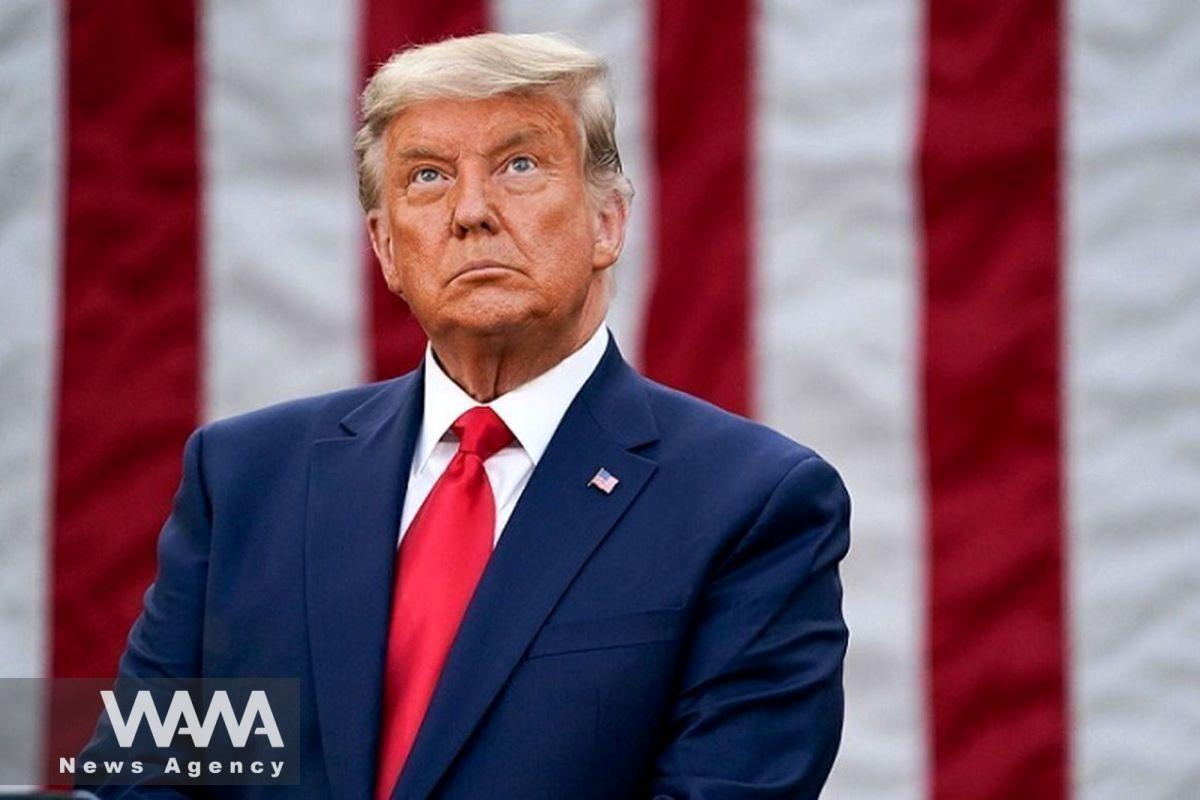Trump: I Hope Iran Reaches an Agreement
WANA (Jan 24) – U.S. President Donald Trump, while discussing Iran, claimed it would be better to resolve the issues without an Israeli attack, stating, “I hope Iran will agree.”
Speaking to reporters at the White House, Trump expressed optimism that the matter could be resolved without any unnecessary steps. “It would be great if this could be resolved without that extra step being taken,” he added.
When asked whether the U.S. would support Israel in a potential attack on Iran’s nuclear facilities, Trump responded, “Obviously, I won’t answer that question. We’ll have to see what happens. I’ll be meeting with various people in the coming days. Hopefully, this issue will be resolved without such measures. That would be great.”
Regarding who he would be meeting with, Trump stated, “I’d prefer not to say, but I’ll be meeting with very high-ranking individuals.”
Trump also commented, “I hope Iran will come to an agreement. If they don’t, I suppose that’s fine too.”
When asked if Steve Witkoff might be appointed as his Middle East envoy in charge of Iran strategy, Trump clarified that Witkoff would not lead the Iran file but praised him as an “excellent negotiator.” “No, but I will definitely use him. He’s an excellent negotiator and a very popular, admirable individual,” Trump added.
Previously, the Financial Times reported that Witkoff would be the special envoy for Iran under Trump’s administration, while Axios suggested Trump hadn’t made an official decision yet but might head in that direction.
On lifting physical protections and security measures for Mike Pompeo and Brian Hook, Trump remarked, “You can’t protect individuals forever. Do you want a large group of people protecting them for life? Risks will always exist.”
Trump also expressed his desire for a prompt meeting with Russian President Vladimir Putin, while claiming that Ukrainian President Volodymyr Zelensky had expressed readiness to negotiate a deal to end the war.
Regarding NATO, Trump stated, “We protect NATO, but they don’t protect us. I’m not sure we should be footing the bill for NATO.”
On the Gaza ceasefire, Trump credited Witkoff for achieving it, suggesting it wouldn’t have been possible without his special envoy to the Middle East. He warned, however, that violating the ceasefire would lead to consequences.
Trump had previously claimed the Gaza ceasefire might not hold.
Meanwhile, Rafael Grossi, speaking on the sidelines of the annual World Economic Forum in Davos, reiterated that the International Atomic Energy Agency (IAEA) remains engaged in discussions with Iranian officials. He expressed hope that the Trump administration would pursue negotiations to secure a new agreement with Iran.
The IAEA Director-General stated, “I believe Trump’s team is eager to reach a new agreement with Iran.”
During his inauguration speech, Trump refrained from making any direct statements about Iran. However, he accused the Islamic Republic of being weakened after Hezbollah leader deaths and Israeli attacks on its air defense infrastructure during his executive order signings.
In subsequent speeches to his supporters, Trump claimed, “We’re back to hold Iran accountable and end its use of oil revenue to fund terrorist organizations.” He alleged that Iran was financially bankrupt in the past, unable to support Hamas and Hezbollah, and blamed Biden for enabling situations like the “Al-Aqsa Storm” operation, suggesting that Iran wouldn’t have had the resources for such actions otherwise.
Following the 2015 nuclear deal (JCPOA), Iran fully implemented its obligations, as verified in 16 IAEA reports. Yet, under Trump’s unilateral withdrawal from the JCPOA on May 8, 2018, sanctions previously lifted under the agreement were reinstated.
In response, Iran invoked the dispute resolution mechanism outlined in the JCPOA framework in 2018. Although other signatories issued 11 commitments to offset the U.S. withdrawal’s impacts, uneven implementation and intensifying sanctions forced Iran to gradually reduce its voluntary nuclear commitments starting












